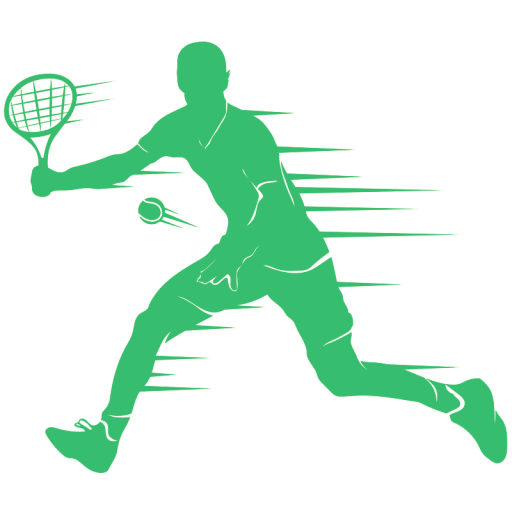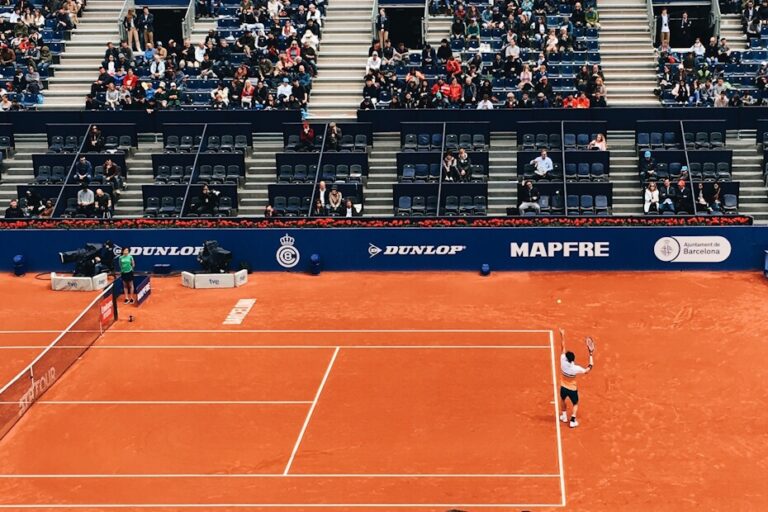Okay, picture the scene. It’s late May. The birds are singing, the sun is shining, you’ve managed to get seats to the French Open tennis tournament and are about to enjoy the start of what will surely be one of the most hotly anticipated tennis matches in recent memory, between Novak Djokovic and Rafa Nadal. 30 minutes later the match is called off, with one of the players being declared the winner because the other was 30 minutes late with no explanation. Frustrating? Absolutely, but that, my tennis-loving friends, is what is known as a walkover.
Tennis is one of the world’s most popular sports, with professional tennis bringing in millions upon millions of viewers every single year. As competitive as some matches can be, there are sometimes instances where things don’t go to plan. Tennis has its own set of rules and regulations that need upholding and sometimes a walkover is the only reasonable way of upholding these rules and regs.
In tennis, and sport in general, the term ‘walkover’ is often used to describe a situation where a player or a team wins emphatically, with no issues at all. In tennis, however, the term is different, as you’ll find out below.
What Does a Walkover Mean in Tennis?
Believe it or not, in tennis, it is actually possible for a player to win a game of tennis without even hitting a single ball. A walkover is one of these possibilities.
A tennis walkover is basically where a player wins a tennis match without even competing.
There are a few scenarios in which a walkover can occur in tennis. One such instance is where a tennis match is canceled 24 hours prior with no notification beforehand, or if a player sustains an injury during a warm-up and is unable to compete. The player or team who cancels the match loses the match and their opponent wins by walkover.
Another scenario, like the one we mentioned in the intro, is when a player is more than 30 minutes late to a game with no justifiable reasons or excuses. There are of course exceptions here such as administrative mistakes, but generally, if a player is 35 minutes late to a match because they overslept, they will forfeit the match and their opponent will take the win.
Why Was the Walkover Developed?
The main reason why the walkover was developed in tennis was simply to ensure that players did not disrupt a game or tournament’s schedule or to provide a solution for scenarios where a game was postponed at short notice.
According to the US Tennis Association ‘a player who defaults a match, retires, or is defaulted, shall be deemed to have lost the match.’ This rule is still in place to this day.
It should, however, be noted that, although similar, a walkover is not the same as retiring a match, as you will soon discover.
What Is the Difference Between Retiring From a Match and a Walkover?
Although there are similarities, players who retire from a match are not subject to the same rules and regulations as players who lose a match due to a walkover.
A retirement in tennis takes place when a player is unable to continue a tennis match due to illness, injury, disciplinary issues, or personal circumstances.
Walkovers can still occur due to injury, though the injury has to occur during the warm-up period or before the match begins, rather than during the match, for a walkover to be called. So, if for example, a player sustains an injury a week before a match, if the match day arrives and the player is unable to play, or if they have to withdraw, as the injury occurred before the match, their opponent will win by walkover.
If they were healthy going into the match but sustained an injury in the midst of playing and had to withdraw, this would be retirement.
What Is the Difference Between Walkover and Default in Tennis?
Just to confuse matters further, walkovers and defaults are also often confused with one another, and for obvious reasons. There are, however, some key differences here, which we will address now.
Although there are exceptions, generally speaking, the main differences between a default and a walkover lie in who initiates the process.
If a player withdraws from a match due to an illness, injury, or personal circumstances, this will initiate a walkover. If they refuse to play for any other reasons, this will instead count as a default.
Defaults occur when officials determine that a player cannot continue a match or take part in a match due to a violation. So, if a player swears, shows aggressive behavior, or hurls abuse at an official, this would result in a default. Arguably the most infamous default in the history of tennis occurred at the Australian Open in 1990, when John McEnroe, the original ‘bad boy of tennis’ grew frustrated with the officiating of a match he was involved in and broke his racquet and swore at the official multiple times until the official called a default and disqualified McEnroe, awarding his opponent the victory.
Do Walkovers Count as Official Wins and Losses?
To complicate matters further, although players can be awarded match victories or losses due to walkovers, officially when it comes to win-loss records, a walkover does NOT count as a match win or match loss for either player.
Put simply, if a player does lose a tennis match due to a walkover, officially in the record book, this loss will not count as an official defeat.
A retirement, however, DOES count as a match victory or defeat for players in an official capacity. So, even though it may seem cruel, if a player is injured during a match and is forced to retire from the match, this will count as a loss and will affect their win-loss record and their subsequent ranking.
Where Did the Term Walkover Originate?
Even though the origins of the term can’t be traced back to tennis, as it applies to tennis today we’re going to take a quick journey back in time to find out where the term ‘walkover’ actually originated.
Historians agree that the term can be traced back to the UK in 1829, to horseracing of all sports. The story goes that, under Jockey Club rules, a participant in a one-horse race must at least ‘walk over’ the course before they can be awarded the victory.







